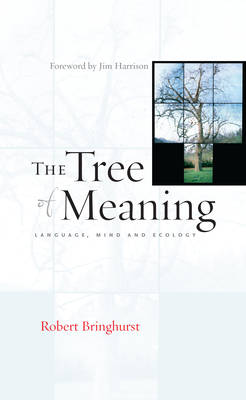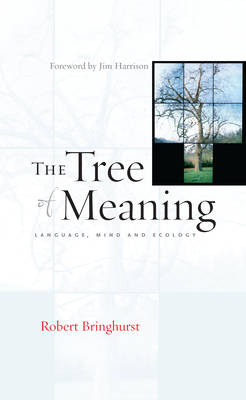
- Afhalen na 1 uur in een winkel met voorraad
- Gratis thuislevering in België vanaf € 30
- Ruim aanbod met 7 miljoen producten
- Afhalen na 1 uur in een winkel met voorraad
- Gratis thuislevering in België vanaf € 30
- Ruim aanbod met 7 miljoen producten
Zoeken
€ 24,95
+ 49 punten
Omschrijving
"Poems, where I come from," writes Robert Bringhurst, "are spoken to be written and written to be spoken. The Tree of Meaning is a book of critical prose composed in the same way." Together, these thirteen lectures present a superbly grounded approach to the study of language, focusing on storytelling, mythology, comparative literature, humanity, and the breadth of oral culture. Bringhurst's commitment to what he calls "ecological linguistics" emerges in his studies of Native American art and storytelling, his understanding of poetry, and his championing of a more truly universal conception of what constitutes literature. This collection features a sustained focus on Haida culture, the process of translation, and the relationship between beings and language. Compiling ten years of work, this book is remarkable not only for the cohesion of its author's own ideas, but for the synthesis of such wide-ranging perspectives and examples of cultures both human and nonhuman. Applying his trademark enthusiasm and ecologically conscious, humanitarian approach, Bringhurst produces a highly personalized and active study of Native American art and literature, world languages, philosophy, and natural history.
Specificaties
Betrokkenen
- Auteur(s):
- Uitgeverij:
Inhoud
- Aantal bladzijden:
- 352
- Taal:
- Engels
Eigenschappen
- Productcode (EAN):
- 9781582435053
- Verschijningsdatum:
- 1/07/2009
- Uitvoering:
- Paperback
- Formaat:
- Trade paperback (VS)
- Afmetingen:
- 124 mm x 206 mm
- Gewicht:
- 362 g

Alleen bij Standaard Boekhandel
+ 49 punten op je klantenkaart van Standaard Boekhandel
Beoordelingen
We publiceren alleen reviews die voldoen aan de voorwaarden voor reviews. Bekijk onze voorwaarden voor reviews.











